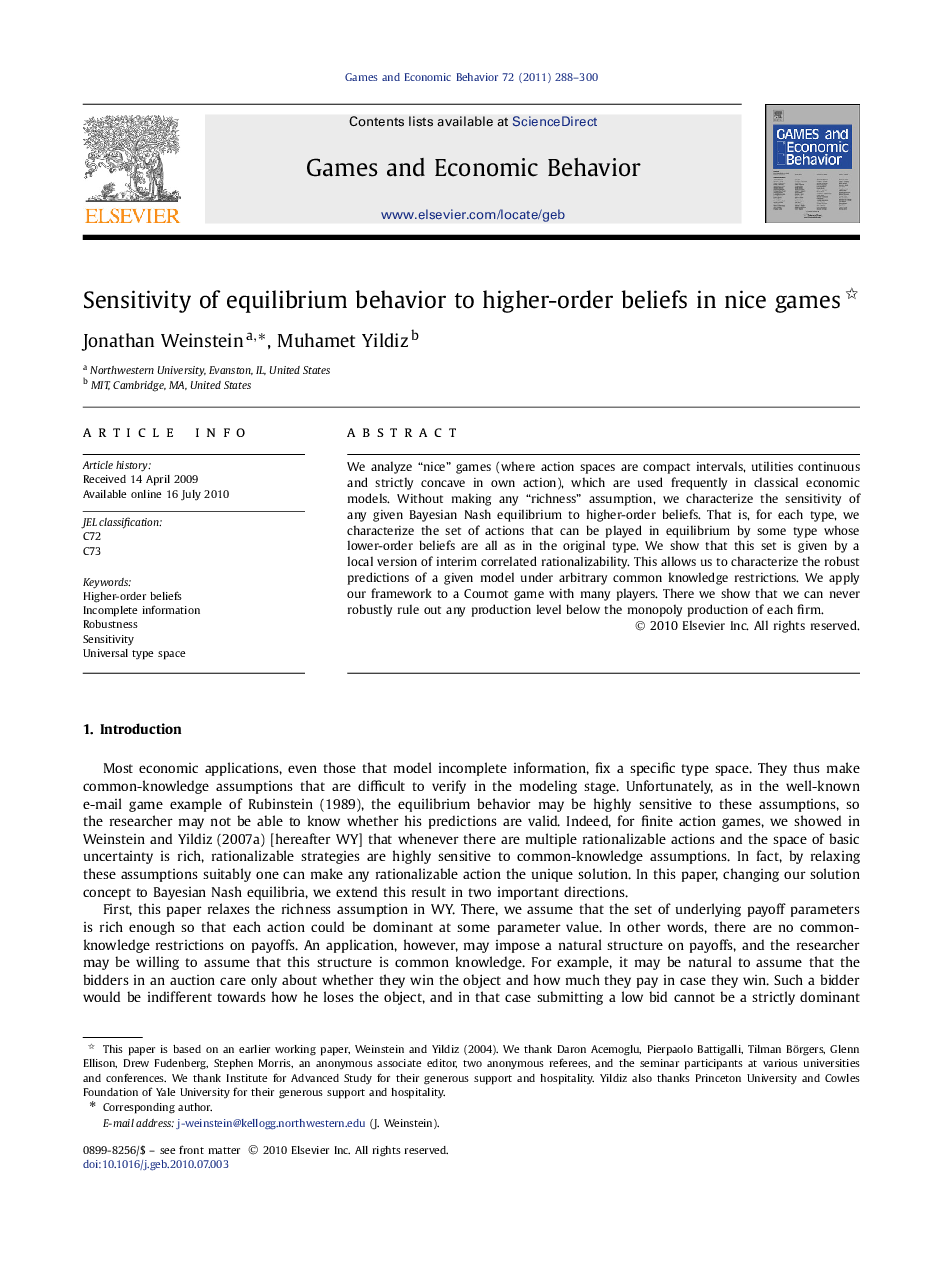| Article ID | Journal | Published Year | Pages | File Type |
|---|---|---|---|---|
| 5072306 | Games and Economic Behavior | 2011 | 13 Pages |
Abstract
We analyze “nice” games (where action spaces are compact intervals, utilities continuous and strictly concave in own action), which are used frequently in classical economic models. Without making any “richness” assumption, we characterize the sensitivity of any given Bayesian Nash equilibrium to higher-order beliefs. That is, for each type, we characterize the set of actions that can be played in equilibrium by some type whose lower-order beliefs are all as in the original type. We show that this set is given by a local version of interim correlated rationalizability. This allows us to characterize the robust predictions of a given model under arbitrary common knowledge restrictions. We apply our framework to a Cournot game with many players. There we show that we can never robustly rule out any production level below the monopoly production of each firm.
Related Topics
Social Sciences and Humanities
Economics, Econometrics and Finance
Economics and Econometrics
Authors
Jonathan Weinstein, Muhamet Yildiz,
